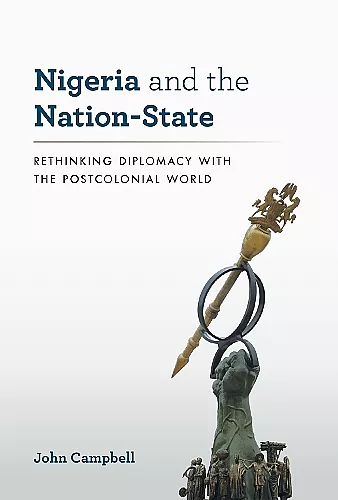Nigeria and the Nation-State
Rethinking Diplomacy with the Postcolonial World
Format:Hardback
Publisher:Rowman & Littlefield
Published:2nd Dec '20
Currently unavailable, and unfortunately no date known when it will be back

Leading expert John Campbell explains why Nigeria, projected to become the third most populous country in the world by 2050, is so important to understand in a world of jihadi extremism, corruption, fragile states, oil, and communal violence.
This important book traces the fractured colonial history and contemporary ethnic conflicts and political corruption that define Nigeria today. Leading expert John Campbell argues that Nigeria is widely misunderstood, yet as one of the world’s most populous countries with Africa’s largest economy, it is essential that the West get Nigeria right.Nigeria matters. It is the largest African economy, projected to become the third most populous country in the world by 2050, with its democratic aspirations are challenged by rising insecurity. It is also misunderstood. Leading expert John Campbell traces the mistakes and misunderstandings of British colonial rule that forced a territory with hundreds of distinct languages, ethnic groups, and religions, no history of political unity, and no history even of similar political organization, into a single unit. After Nigerian independence in 1960,
a civil war that cost the lives of one million Nigerians ended in a generation of military rule that ended only in 1999. When the military finally returned to their barracks, what was left? It was not—and never had been—a nation-state like those of Europe. It is still not quite a nation because Nigerians are not yet united by language, religion, culture, or a common national story. It is not quite a state because the government is weak and getting weaker, beset by Boko Haram in the northeast, intercommunal violence across the middle of the country, an insurrection in the Niger Delta, and a country-wide crime wave.
Instead, it is something the author calls a prebendal-archipelago. It is prebendal because Nigeria’s political leaders take public money for private purposes. Not only is this corruption on a massive scale, it is also what keeps a fragile state from ultimately falling apart. The competing elites who ultimately benefit also cooperate to keep those benefits coming. Much of that public money is fueled by revenue from Nigeria’s state-owned oil. The oil-heavy focus of the government has stymied the development of other sectors. It is an archipelago because the state cannot be said to actually have control over much of its territory.
This deeply knowledgeable book is an antidote to those who would make the mistakes of Vietnam, Afghanistan, and Iraq, mistakes based on misunderstanding,...
ISBN: 9781538113752
Dimensions: 237mm x 162mm x 23mm
Weight: 558g
312 pages